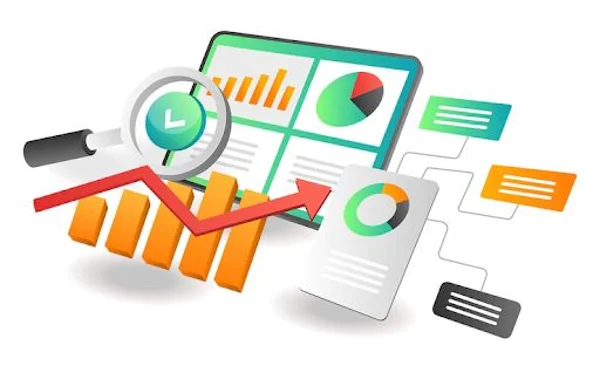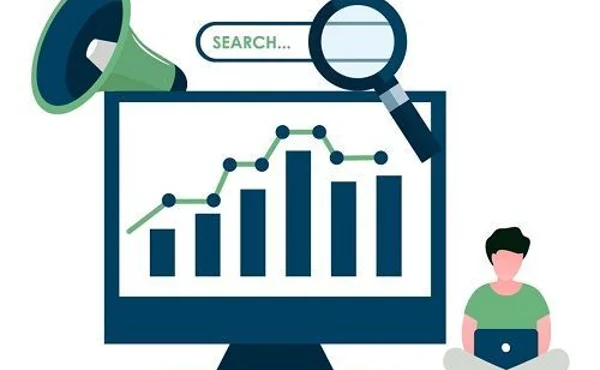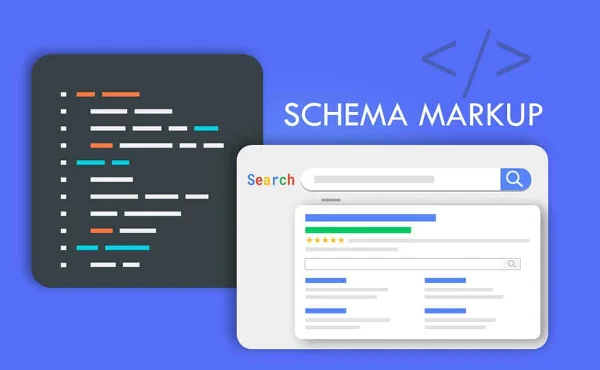
If you want to improve your website's visibility and ranking on search engines, you need to optimize not only your content but also your code. Technical SEO is the practice of enhancing the technical aspects of your website, such as speed, performance, structure, and markup, to make it more crawlable, indexable, and user-friendly.
One of the technical SEO techniques that can boost your website's performance and user experience is FAQ Schema. FAQ Schema is a type of structured data that allows you to display frequently asked questions and answers on your web pages, and also on search engine results pages (SERPs).
In this blog post, we will explain what FAQ Schema is, what types of FAQ Schema are available, what benefits FAQ Schema can bring to your website, and how to implement FAQ Schema on your web pages.
What is FAQ Schema?
FAQ Schema is a type of structured data that follows the Schema.org vocabulary, which is a standardized and shared language for describing the content and meaning of web pages. Structured data is a way of adding extra information to your web pages using HTML tags, attributes, and values, to help search engines understand and interpret your content better.
.webp)
FAQ Schema is a specific type of structured data that allows you to mark up the frequently asked questions and answers on your web pages, using the FAQPage schema type and the mainEntity property. FAQ Schema can be used for any web page that contains a list of questions and answers on a specific topic, such as a product, service, or feature.
For example, if you have a web page that contains FAQs about your online store, such as:
- How can I place an order?
- What payment methods do you accept?
- How long does shipping take?
- What is your return policy?
You can use FAQ Schema to mark up these questions and answers, using the following syntax:
<script type="application/ld+json">
{
"@context": "https://schema.org",
"@type": "FAQPage",
"mainEntity": [
{
"@type": "Question",
"name": "How can I place an order?",
"acceptedAnswer": {
"@type": "Answer",
"text": "You can place an order on our website by adding the products you want to the cart and proceeding to checkout. You will need to provide your shipping and billing information, and confirm your order."
}
},
{
"@type": "Question",
"name": "What payment methods do you accept?",
"acceptedAnswer": {
"@type": "Answer",
"text": "We accept credit cards, debit cards, PayPal, and Apple Pay. We do not accept cash, checks, or money orders."
}
},
{
"@type": "Question",
"name": "How long does shipping take?",
"acceptedAnswer": {
"@type": "Answer",
"text": "We offer free standard shipping on all orders over $50. Standard shipping takes 3 to 5 business days. We also offer express shipping for an extra fee, which takes 1 to 2 business days."
}
},
{
"@type": "Question",
"name": "What is your return policy?",
"acceptedAnswer": {
"@type": "Answer",
"text": "We want you to be happy with your purchase. If you are not satisfied with your order, you can return it within 30 days of delivery for a full refund or exchange. The items must be in their original condition and packaging, and you must provide a proof of purchase."
}
}
]
}
</script>
By adding this code to your web page, you are telling search engines that this page contains FAQs, and providing them with the questions and answers.
This can help search engines display your FAQs on SERPs, as rich results or rich snippets, which are enhanced and interactive results that provide more information and value to users.
FAQ Schema Types
There are two types of FAQ Schema that you can use on your web pages, depending on the source and nature of your FAQs:
User-generated FAQs: These are FAQs that are generated by your users, such as through comments, reviews, feedback, or forums. User-generated FAQs are usually dynamic and updated frequently, and they reflect the real questions and concerns of your users.
User-generated FAQs can be marked up using the QAPage schema type and the mainEntity property, which can contain multiple Question and Answer schema types.
Editorial FAQs: These are FAQs that are created by you, the website owner or editor, such as through research, analysis, or expertise. Editorial FAQs are usually static and updated occasionally, and they reflect the common questions and answers that you want to provide to your users.
Editorial FAQs can be marked up using the FAQPage schema type and the mainEntity property, which can contain multiple Question and Answer schema types.
The difference between these two types of FAQ Schema is that user-generated FAQs can also include additional properties, such as upvoteCount, downvoteCount, dateCreated, author, and comment, to indicate the popularity, freshness, and credibility of the FAQs.
Editorial FAQs do not have these properties, as they are not based on user feedback.
For example, if you have a web page that contains user-generated FAQs about your online store, such as:
- How can I track my order? (5 upvotes, 2 downvotes, 3 comments, asked by John on 01/01/2024, answered by Alice on 01/02/2024)
- How can I cancel my order? (3 upvotes, 1 downvote, 2 comments, asked by Mary on 01/03/2024, answered by Bob on 01/04/2024)
- How can I contact customer service? (2 upvotes, 0 downvotes, 1 comment, asked by Tom on 01/05/2024, answered by Sue on 01/06/2024)
You can use user-generated FAQ Schema to mark up these questions and answers, using the following syntax:
<script type="application/ld+json">
{
"@context": "https://schema.org",
"@type": "QAPage",
"mainEntity": [
{
"@type": "Question",
"name": "How can I track my order?",
"upvoteCount": 5,
"downvoteCount": 2,
"dateCreated": "2024-01-01",
"author": {
"@type": "Person",
"name": "John"
},
"acceptedAnswer": {
"@type": "Answer",
"text": "You can track your order by logging into your account and clicking on the order history. You will see the status and tracking number of your order. You can also click on the tracking number to see the delivery details.",
"dateCreated": "2024-01-02",
"author": {
"@type": "Person",
"name": "Alice"
}
},
"comment": [
{
"@type": "Comment",
"text": "Thank you, Alice. This was very helpful.",
"dateCreated": "2024-01-03",
"author": {
"@type": "Person",
"name": "John"
}
},
{
"@type": "Comment",
"text": "I agree. This is a great feature.",
"dateCreated": "2024-01-04",
"author": {
"@type": "Person",
"name": "Mary"
}
},
{
"@type": "Comment",
"text": "I have a problem with my order. It says it was delivered, but I never received it.",
"dateCreated": "2024-01-05",
"author": {
"@type": "Person",
"name": "Tom"
}
}
]
},
{
"@type": "Question",
"name": "How can I cancel my order?",
"upvoteCount": 3,
"downvoteCount": 1,
"dateCreated": "2024-01-03",
"author": {
"@type": "Person",
"name": "Mary"
},
"acceptedAnswer": {
"@type": "Answer",
"text": "You can cancel your order by logging into your account and clicking on the order history. You will see a cancel button next to your order if it has not been shipped yet. If it has been shipped, you will need to contact customer service to request a return or exchange.",
"dateCreated": "2024-01-04",
"author": {
"@type": "Person",
"name": "Bob"
}
},
"comment": [
{
"@type": "Comment",
"text": "Thank you, Bob. I was able to cancel my order easily.",
"dateCreated": "2024-01-05",
"author": {
"@type": "Person",
"name": "Mary"
}
},
{
"@type": "Comment",
"text": "I wish I knew this before. I ordered the wrong size and now I have to return it.",
"dateCreated": "2024-01-06",
Benefits of FAQ Schema
FAQ Schema can bring many benefits to your website, such as:
Increasing your CTR and traffic: By displaying your FAQs on SERPs, you can attract more attention and clicks from users who are looking for answers to their queries. You can also provide more information and value to users, and increase their trust and confidence in your website.
Improving your SEO ranking: By using FAQ Schema, you can provide more relevant and structured content to search engines and improve your chances of ranking higher on SERPs. You can also increase your site's authority and credibility, and reduce your bounce rate and pogo-sticking.
Enhancing your user experience and satisfaction: By displaying your FAQs on your web pages, you can provide a better user experience and satisfaction to your visitors. You can answer their common questions and concerns, and reduce their frustration and confusion.
You can also increase your conversion rate and retention rate, and build long-term relationships with your customers.
Conclusion
FAQ Schema is a powerful and effective technical SEO technique that can help you improve your website's performance and user experience. By using FAQ Schema, you can display your FAQs on your web pages and on SERPs, and provide more information and value to your users and search engines.
If you want to implement FAQ Schema on your web pages, you can use the Schema Markup Generator tool, which is a free and easy-to-use tool that can help you create and validate your FAQ Schema code. You can also use the Rich Results Test tool, which is a free and useful tool that can help you preview and test your FAQ Schema code and rich results.
If you want to learn more about schema, and how to implement it on your website check out our full guide on How to implement structured data on your site?
What to read next

